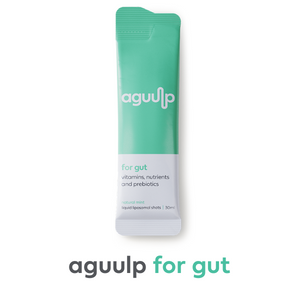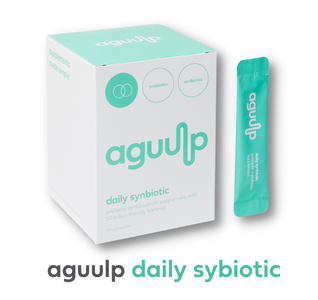What Are The Worst Foods for Gut Health?
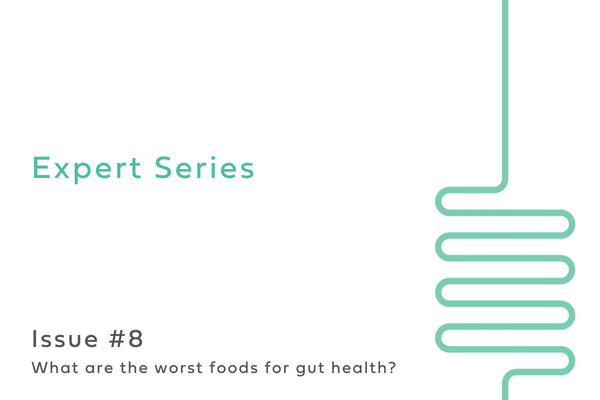
Research has revealed that the foods we eat can have a significant impact on the health of our gut, specifically to the trillions of bacteria which naturally reside in the gut. We wanted to know what were the worst foods for gut health, and what foods we should have instead, so we spoke to our in-house expert Liz to find out. Here’s what she had to say…
How does the food we eat affect our gut health?
The foods we eat play a vital role in our gut health, more specifically in relation to the bacteria that live in our gut (our microbiome). There’s a diverse array of microbial communities that reside in our gut and each individual’s variation of microbes is reflective of multiple factors, including:
- Diet
- Lifestyle
- Genetics
- Geographical location
In terms of our diet, it is thought that the structure and activity of the bacteria within the microbiome are influenced not only by long-term dietary patterns, but studies have shown that even short-term changes (sometimes in as little as a day) can affect the composition and behaviours of our gut bacteria!
Certain foods have been shown to encourage the growth of healthy beneficial bacteria in the gut, while others can have the opposite effect and promote the growth of unhealthy and even harmful strains of bacteria, making these among the worst foods for gut health.
To put it bluntly, the diet can either kill or cultivate a healthy gut flora! (Yikes!)
The world of gut health and how it relates to our overall health and wellbeing and all the research that goes with this is all very much in its early stages, but we do know that our diet plays a significant role in determining the composition of our gut bacteria.
This is because different species of bacteria respond differently to the types of foods we consume. For example, a diet that may be very restricted and lacking in variety will lead to a decrease in the diversity of beneficial bacteria that help us to metabolise and break down our food efficiently. Consequently, this could lead to gut health problems and the potential for more severe and longer-term health problems. So while there are some foods that could fall into the ‘worst foods for gut health’ category, your gut health ultimately depends on your overall diet.
Worst foods for gut health: what to be wary of
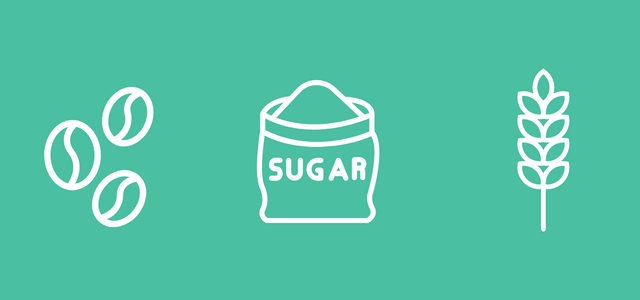
Some of the worst foods for gut health are more ingredients than foods; for example, gluten, caffeine, and sugar. Read on to discover everything you need to know about which foods to be extra mindful of in your diet…
1. Highly processed & sugary foods
Sugar can be one of the worst foods for gut health of all. Sugar acts as a food source for bad bacteria and promotes its growth. Meanwhile, highly processed foods not only are lacking in nutritional benefits for the gut due to their natural state being altered, but they can also be more difficult for the digestive system to break down. This subsequently encourages bad bacteria to multiply.
Where bad bacteria in the gut have been allowed to multiply, the opportunity for good bacteria to flourish is diminished, leading to a condition known as ‘dysbiosis’, which describes an imbalance of healthy bacteria in the gut.
An imbalance of healthy gut bacteria can be detrimental to the health of the gut in many ways, including:
- The potential for gut inflammation to manifest
- Potential infection
- Altered gut integrity (leaky gut)
- Unhealthy immune response
2. Gluten
Next on the list is something that’s found in many foods, so it’s natural to be confused over the answer to ‘is gluten bad for your gut?’. For some people, the answer is a definite yes.
For certain individuals, gluten can be particularly harmful to the gut, for example for those who may have coeliac disease. This is a condition whereby the immune system produces antibodies in response to the protein element in wheat (known as gliadin), resulting in damage to the surface area that’s responsible for absorbing nutrients.
Gluten may also be implicated in other auto-immune diseases. It is also possible to have gluten sensitivity or gluten intolerance without being coeliac, which can cause unpleasant side effects. This means gluten can be one of the worst foods for gut health for some people without an intolerance too, and may be best avoided if this is the case.
*It is important to note that it is only recommended to cut out large food groups under the supervision of a suitably trained professional.
3. Caffeine
So, is caffeine bad for your gut too? Coffee lovers, don’t be too alarmed – this is an interesting one!
Caffeine has gained a lot of negative attention over recent years mainly due to its stimulant effects on the body. Caffeine increases stress hormones and, in terms of the effects on the gut, this can lead to anxiety-induced gut symptoms in some people.
However, it’s important to mention here that the stimulant effects of caffeine have also been reported to have positive effects in certain individuals, such as in the case of athletes and sports professionals. Furthermore, coffee has even been shown to have some health benefits in relation to the gut microbiome.
It’s thought that regular and decaffeinated roasted coffee can exert a prebiotic effect, attributed to its polyphenol content. In addition, research has shown that those who consume coffee on a regular basis have been found to have higher levels of anti-inflammatory bacteria, such as Faecalibacterium and Roseburia, as well as lower levels of pathogens such as Erysipelatoclostridium compared to non-coffee drinkers.
This is not to say that high intakes of coffee is recommended due to its potential negative effects but it is certainly advisable to consume caffeine in moderation and according to individual tolerance and sensitivity, meaning it’s not necessarily one of the worst foods for gut health.
What foods are good for our gut health and why?
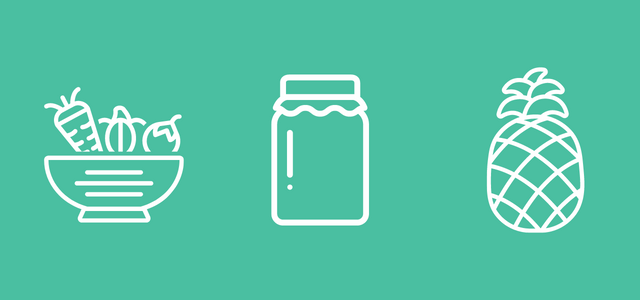
So, now that we’ve covered the worst foods for gut health, it’s important to think about what the best foods for your gut health might be. Try to swap some of those worst foods for more foods that will benefit your gut microbiome, including:
- High-fibre foods: fresh and raw fruits, vegetables (preferably with the skin still intact), nuts and seeds, whole grains and legumes i.e. dried beans and peas such as soya beans, lentils, chickpeas, kidney beans, pinto, and sprouted beans
- Foods containing prebiotic fibre: onions, bananas, broccoli, kale
- Foods to encourage the natural growth of good gut bacteria: celery, leeks, garlic
- Fermented foods: kimchi, kombucha, sauerkraut
- Whole foods: those that are in their natural state or those that have undergone the least amount of processing
- Foods containing digestive enzymes: pineapple is rich in a naturally occurring enzyme called bromelain, while papaya fruit is naturally rich in an enzyme known as papain
Show your gut some love with a gut health supplement
Supplements that have been specifically designed to help support and maintain the normal function of the gut, when used in conjunction with a healthy diet and lifestyle, may help to optimise your digestive function. This can have an overall positive effect on the rest of the body, our health and wellbeing.
An external supply of pre and probiotics can help to replenish healthy levels of bacteria in the gut and is particularly important following antibiotic usage, for example.
Our Daily Synbiotic gut probiotic is a synergistic supplement containing both pre and probiotics in high amounts, and can provide a therapeutic effect for those wanting to target the gut microbiome specifically.
For those looking for more general support, our Aguulp for Gut formula contains several ingredients that may help to support overall gut health. It contains ingredients that have been shown to support specific aspects of gut health, including, but not limited to:
- Gut integrity
- Inflammation
- Healthy microbiota balance
- Immunity
It is always advisable for anyone looking to take any new supplement to discuss this first with your GP. They will have access to your medical history and details of any medications that you may be taking that could potentially interact with ingredients in a supplement.
Want to know more about the best and worst foods for gut health?
If you have any questions regarding our gut supplements, gut health, or even general health, send us a message on [email protected] and one of our in-house experts will be more than happy to help. We also have our very own Aguulp Gut Support Facebook group where you can discuss gut, IBS, or general health problems freely without judgement. You can also sign up to our Aguulp gut health newsletter.
Join our Facebook Gut Support Group now!
References
- Tipton Mills, n.d. Tipton Mills Launches The World’s First Probiotic Coffee. [online] Available at: <https://bc30probiotic.com/idea-center/case-study/tipton-mills-launches-the-worlds-first-probiotic-coffee/> [Accessed 21 May 2021].
- Neutraingredients, 2021. Beneficial brew: NUS researchers develop probiotic tea and coffee with digestive, immune benefits. [online] Available at: <https://www.beveragedaily.com/Article/2021/02/01/Beneficial-brew-NUS-researchers-develop-probiotic-tea-and-coffee-with-digestive-immune-benefits?utm_source=copyright&utm_medium=OnSite&utm_campaign=copyright> [Accessed 21 May 2021].
- Sales, A., dePaula, J., Mellinger Silva, C., Cruz, A., Lemos Miguel, M. and Farah, A., 2020. Effects of regular and decaffeinated roasted coffee (Coffea arabica and Coffea canephora) extracts and bioactive compounds on in vitro probiotic bacterial growth. Food & Function, 11(2), pp.1410-1424.
- Gurwara, S., Dai, A., Ajami, N., El-Serag, H., Graham, D. and Jiao, L., 2019. 196 Caffeine Consumption and the Colonic Mucosa-Associated Gut Microbiota. American Journal of Gastroenterology, 114(1), pp.S119-S120
- Jaquet, M., Rochat, I., Moulin, J., Cavin, C. and Bibiloni, R., 2009. Impact of coffee consumption on the gut microbiota: A human volunteer study. International Journal of Food Microbiology, 130(2), pp.117-121
- Rao, Satish S.C.a; Welcher, Kimberlya; Zimmerman, Bridgetb; Stumbo, Phyllisb Is coffee a colonic stimulant?, European Journal of Gastroenterology & Hepatology: February 1998 – Volume 10 – Issue 2 – p 113-118
- Acquaviva F, DeFrancesco A, Andriulli A, Piantino P, Arrigoni A, Massarenti P, Balzola F. Effect of regular and decaffeinated coffee on serum gastrin levels. J Clin Gastroenterol. 1986 Apr;8(2):150-3. doi: 10.1097/00004836-198604000-00009. PMID: 3745848.
- Zonulin, regulation of tight junctions, and autoimmune diseases; Ann N Y Acad Sci. 2012 Jul; 1258(1): 25–33., doi: 10.1111/j.1749-6632.2012.06538.
- Scand J Gastroenterol. 2006 Apr;41(4):408-19. Gliadin, zonulin and gut permeability: Effects on celiac and non-celiac intestinal mucosa and intestinal cell lines. Drago S1, El Asmar R, Di Pierro M, Grazia Clemente M, Tripathi A, Sapone A, Thakar M, Iacono G, Carroccio A, D’Agate C, Not T, Zampini L, Catassi C, Fasano A.
- Teagasc. “A galaxy within us: Our gut microbiota and how it can be programmed by food.”
- David L, Maurice C, Carmody R, Gootenberg D et al. 2013. Diet rapidly and reproducibly alters the human gut microbiome. Nature. 11 December 2013.
- Singh RK, Chang HW, Yan D, Lee KM, Ucmak D, Wong K, Abrouk M, Farahnik B, Nakamura M, Zhu TH, Bhutani T, Liao W. Influence of diet on the gut microbiome and implications for human health. J Transl Med. 2017 Apr 8;15(1):73. doi: 10.1186/s12967-017-1175-y. PMID: 28388917; PMCID: PMC5385025.
- Hills RD Jr, Pontefract BA, Mishcon HR, Black CA, Sutton SC, Theberge CR. Gut Microbiome: Profound Implications for Diet and Disease. Nutrients. 2019 Jul 16;11(7):1613. doi: 10.3390/nu11071613. PMID: 31315227; PMCID: PMC6682904.
